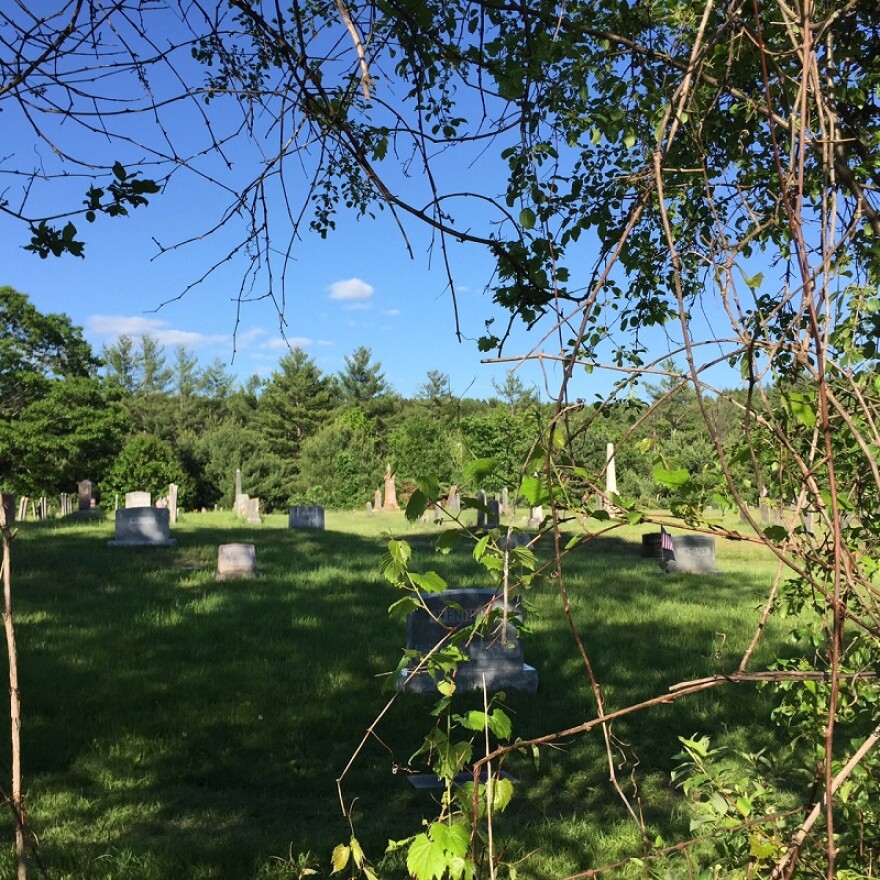A proposal for a 2,000-panel solar development in rural Woodstock has some neighbors upset. The selectboard also has concerns about whether the site is too wet and too scenic for a large solar array.
But Tom Garden, the Massachusetts-based developer with Triland Partners, says it’s an ideal spot from which to generate renewable energy.
A warm sun shines down on Garden as he trudges through bright blue lupines in the meadow he is in the process of buying. It's behind a cemetery on Route 4 in the village of Taftsville, which is part of Woodstock. He likes the 15-acre parcel because it faces south and won't require any clearing. If he gets a permit, a row of transmission poles along one border will make it fairly easy to send 500 kilowatts of power to about 90 customers.
“And the catalyst for the whole idea of the project in Woodstock was the energy committee, a year ago, [was] soliciting bids from contractors and developers to do a net metered system whereby the town meter would be able to save money,” Garden recalls.
But that was before the town knew exactly where he planned to put his project.
“It’s completely out of scale. It is not a solar farm, it’s an industrial power generating plant,” says innkeeper Michael Pacht.
Pacht and his wife own Applebutter B and B, just up the road from the proposed solar array. You can’t see the solar site from his house, but he still opposes Garden’s plan. Pacht says he likes solar power in general, but that this project is in the wrong place, along Woodstock’s historic tourism trail. And he doesn’t think visitors to the abutting graveyard want to look at a bunch of solar panels.
“It’s proposed to border a cemetery that’s on the National Register of Historic Places,” Pacht notes. “It’s sited next to or abutting Route 4, which is a scenic byway, a designated scenic byway.”

Neighbors worry that after panels are installed, water will run down the hill into their properties. The property has been classified as a class 3 wetland, which means it is not protected against development.
Developer Garden says he will use only the dry parts of the site and promises plantings to screen the panels from some views. But in his opinion, this land is not pristine because tall electric transmission lines run along it.
“We’re 1,500 feet away from three substations. You want that for solar,” Garden says.
And, he adds, he wants to build his own vacation house within sight of those lines and panels.
Permitting for renewable energy projects is controlled not by towns, but by the state’s Public Service Board. The Woodstock Select Board has written a letter outlining concerns. Woodstock town manager Phil Swanson says he is studying recent legislation that guarantees towns a role in the PSB review. The legislation also allows towns to require screening standards.
“We will be a participant,” Swanson vows.
But he says it’s still not clear how much control local residents will have over this solar array. And he expects more proposals to sprout as state and federal tax credits make renewable power development increasingly attractive to real estate developers.





